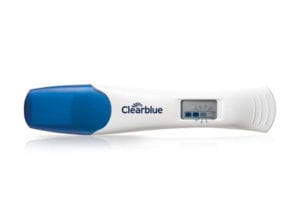7 Common Doctor’s Office Questions (with Answers!)
Why are doctors offices cold? Can they charge for medical records? Can they charge for missed appointments? We’ve got the answers here.
 There’s no shortage of medical questions that patients ask their doctors.
There’s no shortage of medical questions that patients ask their doctors.
But what about questions for the secretaries and phone operators in a doctor’s office?
Doctors are busy taking care of patients. And it’s not realistic to expect them to do that on top of handling things like payments and scheduling.
The staff working in a clinic office are available to help and answer patient questions. Here are 7 of the most asked questions that patients ask them.
1. Can Doctors Charge for Missed Appointments?
 Doctors aren’t just saving lives and helping people stay healthy. They’re also running a business.
Doctors aren’t just saving lives and helping people stay healthy. They’re also running a business.
That’s one of the big reasons why doctors can charge for missed appointments. Because when patients miss their appointments, the doctors lose revenue.
They also charge because it costs time and money for their staff to reschedule patients. Not to mention, it also takes time away from other patients.
Fortunately, there are cancellation lists. But there’s not enough notice to squeeze in another patient when there’s a no-show.
Patients sign off on this policy when they start at a new doctor’s office. The office is usually flexible when it comes to emergencies. But this depends on the office and what they deem as justifiable for missing the appointment.
Physician offices typically don’t charge when someone cancels 24-48 hours in advance. It’s always good to know an office’s policy on this before starting treatment.
2. Do Offices Charge for Obtaining Medical Records? Can They Withhold Medical Records?
 There are many reasons why patients need copies of their medical records. So, it’s not uncommon for office staff to receive medical record requests on a near-daily basis.
There are many reasons why patients need copies of their medical records. So, it’s not uncommon for office staff to receive medical record requests on a near-daily basis.
In fact, every patient has the right to get their medical records under HIPAA. They can obtain their medical records from any and all medical providers.
The parents or guardians of patients can also obtain their child’s medical records. Additionally, people given permission from the patient directly can, as well.
In some cases, medical providers can withhold medical records. For instance, some psychotherapists can withhold their notes on a patient’s case.
Providers can withhold medical records from parents. This is because some medical treatments don’t require parental consent.
Every patient has the right to see their medical records for no cost. But sometimes it costs money to get a copy of these records.
There are different laws for this on a state-by-state basis. It also depends on the medical provider’s policy.
A doctor’s office can charge for medical records copies if the law allows them to. A provider usually charges to cover the costs of copying and mailing.
3. Can a Doctor Refuse Treatment?
 Unfortunately, many patients complain about their doctors.
Unfortunately, many patients complain about their doctors.
But doctors also encounter their fair share of difficult patients. And while it’s rare, it is possible for doctors to refuse treatment to certain patients.
Disruptive and rude behavior are common reasons why doctors end up refusing treatment. They have the right to refuse to work with unpleasant patients.
A doctor’s office can also refuse treatment to patients who don’t pay their medical bills. This is another instance of poor patient-doctor relations that usually leads to lawsuits.
In other cases, some doctors simply can’t accept new patients. When this happens, rejected patients will be put on a waiting list. Other times they’ll get a referral to someone else, or they’ll have to find a different doctor on their own.
4. How Accurate Are In-Office Pregnancy Tests?
 Any woman who wants a definite answer on whether she’s pregnant should get it from a doctor’s office.
Any woman who wants a definite answer on whether she’s pregnant should get it from a doctor’s office.
It’s true that over-the-counter pregnancy tests are becoming more accurate every year. But it’s still common for these tests to produce false-negative results.
A woman can test for pregnancy sooner with a blood test than a urine test. Which is another reason why a doctor’s pregnancy test is more reliable.
In any case, a woman should seek medical care if they suspect they’re pregnant.
5. Can a Doctor’s Weight Scales Be Wrong?
 It’s safe to say that most scales at the doctor’s office are accurate.
It’s safe to say that most scales at the doctor’s office are accurate.
This is true considering that a doctor’s scale is higher end and not readily available in stores. It’s also true because some doctors weigh their patients without shoes. Other doctors weigh patients after they change into patient gowns.
Sometimes a doctor’s scale may be 1 pound or a couple pounds off. But rarely are the scales more than 5 pounds off.
6. Why Is the Doctor Office so Cold?
 This is one of the biggest mysteries that patients have been pondering for years.
This is one of the biggest mysteries that patients have been pondering for years.
A doctor’s office is kept cold for a couple reasons. First, the cooler temperatures help to prevent the spread of germs.
Bacteria thrive in warm environments. If physician offices were warmer, bacteria, viruses, and sickness would infest them.
Additionally, nurses, doctors, and office staff are busy running around all day. The cooler temperatures prevent them from sweating. Which, in hand, also prevents the spread of germs.
7. What’s the Difference Between Urgent Care & a Doctor’s Office Visit?
 Often patients require immediate medical attention for non-life threatening illnesses and injuries. Other times, patients fall ill or get injured when their physician’s office is closed.
Often patients require immediate medical attention for non-life threatening illnesses and injuries. Other times, patients fall ill or get injured when their physician’s office is closed.
Urgent care is open on weekends and during hours when most primary offices are closed. Urgent care patients need immediate treatment when they can’t see their primary doctor.
Urgent care physicians do everything primary physicians can.
They can diagnose viruses and bacterial infections, including UTI’s, strep throat, and the flu. They also write prescriptions and communicate with primary physicians on patient follow-up appointments.
Patients who need an annual checkup shouldn’t go to urgent care. Urgent care is there for non-life threatening emergencies. If a patient can wait to see their primary doctor the following day, they shouldn’t go to urgent care.
Provide the Quality Medical Care Patients Deserve & Need
A good experience at the doctor’s office starts with the initial phone call.
And luckily, many patient questions can get answered through a clinic’s answering services.
Every doctor should give their patients the support and satisfaction they need. Medical Call Service is there to deliver.
Leave a Reply